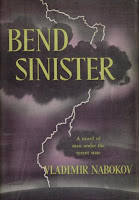
On Thursday I wrote about listening to audiobooks as opposed to reading books the traditional way, and said I would write about The Wind-up Bird Chronicle, having only listened to it the once, to illustrate how much one can gain from an audiobook.
I took two days instead of one to cobble this post together, and I would say that the process of writing this review has not been entirely pleasant. I wouldn’t normally feel comfortable making proclamations about a book after just a once-through: listening or reading. I would like to return to certain passages, particularly early on, in order to appreciate more of the craft behind the novel. By nature, I seem to gravitate towards discussions of craft, which is the hardest thing to dissect on a first run through. But here it is. My review of Haruki Murakami’s The Wind-up Bird Chronicle - the audiobook - translated by Jay Rubin and read by Rupert Degas…
***
From the very first lines of The Wind-up Bird Chronicle, a picture of the narrator, Toru Okada, begins to form. Slightly anal, maybe even myopic. Okada, we soon learn, is out of a job and taking his time to decide what he does next. Time and freedom, it seems, have let his inner pedant run wild. He meticulously describes the process of cooking a plate of spaghetti and the classical music on the stereo, and then… a phone call.
The woman on the other end of the line asks for ten minutes, after which time, she assures him, they will really know each other. Such talk is outside his current frame of reference and he cuts the call short.
But slowly, inexorably, weirdness begins to penetrate Toru Okada’s muted world.
As he searches for Noburu Wataya, the cat named after his brother in law, he befriends Mei Kasahara, a sixteen year old girl out of school indefinitely after a motorcycle accident. Their friendship begins on an intellectual level – with Mei airing her not-so-16-yr-old views on death - passes through the vaguely erotic, and by the end of the novel, even though they are now in different parts of Japan, the relationship has taken a very spiritual turn.
Tension in the first quarter of The Wind-up Bird Chronicle builds as it becomes clear to the reader (but not Toru Okada) that his wife, Kumiko, is having an affair. When she goes missing, Okada is finally plunged head-first into the weird world which until then he had managed to hold on the periphery by ironing shirts and not thinking too hard about things.
While Okada’s relationship with Mei Kasahara is often given pride of place structurally, it is more of an anchor for the story than a rocket. The blast off is provided by the spiritualist Malta Kano and her sister/sidekick/psychic seductress Creta Kano. Suddenly Okada is having lucid dreams, described in much the same detail as his daylight activity, in which he “co-joins” his body with Creta Kano. Later, Okada learns that Creta Kano was an active participant in these dreams. They were, if there is such a word: coterminous.
While Toru Okada is struggling to figure out why his wife has disappeared and having vivid wet dreams, he also strikes up an unlikely friendship (as are all the relationships in the novel) with an elderly WWII veteran called Lieutenant Mamiya. Over the course of the novel, Mamiya tells Okada a long, violent, and at times supernatural, story about his experiences in Machukuo and later Siberia in the 1940s.
The strength, the triumph, of The Wind-up Bird Chronicle is the way that all of the above (which I have laboured to outline) occurs at such a comfortable pace, and everything is absolutely essential. Without Mamiya, Toru Okada would not have gone down into a dried up well, which he would not have known about if it were not for Mei Kasahara (and the missing cat), wherein he must battle to co-ordinate the out-there spirituality of the Kano sisters, his missing wife, and his own shuddering sense of self.
The novel is separated into three books, with the third being the largest of the lot, covering the most pages (or tracks) and the longest period of time within the story. Early on in Book One, Toru Okada objects to the way Malta Kano speaks in abstractions and general things, to which she replies that concrete things are not of importance and the only things which are really worth talking about can only be done so in generalisations. This is, perhaps, explains why Book Three is the most difficult.
But, as I listened, there were other, more superficial, aspects of Book Three which lessen its hold on the reader, the first being the shifts in pace. The joy of the first two books of The Wind-up Bird Chronicle is the way that everything is happening at once, yet, through Okada’s slow, deliberate narration, all the question marks and knee-jerks are suppressed.
After passing through the wall of the well in another lucid dream cum spiritual experience, in a matter of pages Okada spends almost an entire year people watching and waiting for Kumiko to return, or to figure out what is going on, or to decide what to do with his life, but of course, none of these happens.
Book three has an utterly different body clock, which might have worked okay in isolation, but coming as it does 60% of the way through the novel, it makes the remainder feel… shallow.
When Okada is employed by the mother and son team of Nutmeg and Cinnamon Akasaka, the pace slows, but it does not (and cannot) return to the languid and meticulous narration of the first two books. It also does not help that the Akasakas function in much the same way as the Kano sisters (who have disappeared), and the informed-uninformed dynamic is less interesting the second time around.
Also acting against Book Three is the sudden appearance of implags. I picked this term up from Jonathan Coe (specifically, Like a Fiery Elephant). It’s basically a blend of ‘imported plagiarism’. That is, when made up newspaper reports and the like are inserted into the text of a novel. These implags purport to be written by people other than the narrator, and when used well, they are a way of exploding a story, the way Cubists tried to explode the 2-D plane of a painting a century ago (almost).
Implags are a way of showing multiple, conflicting perspectives of an idea or an event. Coe uses implags throughout The Rotter’s Club and The Closed Circle in just this way. Implags work best on the page when form and font can help ad an air of realism to the inserstions and differentiate them from the rest of the narration. But implags are still easy to pick up in an audiobook. I listened to both of Coe’s novels above and found the implags were one of their strongest features.
The implags in Book Three of Murakami’s novel take the form of several gossip rag articles about the mysterious activities going on in the property where we know Okada is acting as some sort of spiritual healer for Nutmeg Akasaka; letters written to Okada by Mei Kasahara after she moves away to work in wig factory; and stories written by Cinnamon Akasaka about Machukuo.
These implags do enable the book’s perspective to expand out from what has been the engaging but limited perspective of Toru Okada, but, their sudden appearance after so long with Okada’s voice and nothing else (barring a few short letters from Kumiko and Lt. Mamiya) serves to unsettle the story rather than root it in a wider world.
It’s like if you started constructing a bookshelf from Ikea, and then, you turn to the back page of the instruction booklet and it starts talking about a dining room table.
Coe’s novels, in contrast, feature implags throughout. From page to page the narrative is uneven, but from a distance, everything is symmetrical.
After delving into these complaints, it sounds like The Wind-up Bird Chronicle failed to meet my exacting standards as a reader, I mean: listener. But, I am swipe away the unevenness of book three, and even the way it doesn’t live up to the skilful mix of mellow mystery and head-scratching ideas established the first two books. I still think the novel as a whole is close enough.
This evening I watched the movie Network, and loved it. I mean, I started reshuffling my mental list of favourite films as I watched the final act, that’s how much I rated the movie. But it, too, was flawed. Insanely flawed. The best satires must, inescapably, sacrifice logic and realism somewhere, and so I could forgive Paddy Chayevsky’s script and Sidney Lumet’s direction.
And while Network is predominantly a satire and The Wind-up Bird Chronicle is the farthest thing from a send up, there’s a strange confluence of ideas and method. The rants of the mad news anchor Howard Beale, Diana Christensen’s use of psychics, and the final way-of-the-world speech of the Mr Jensen in Network, all have corollaries in The Wind-up Bird Chronicle.
I realise I am compounding my sins by comparing a film I’ve just seen with a novel I’ve just listened to. But, if you’re about to string me up for my sins, let me have my Howard Beale moment: there are so many books and films and albums and blogs one should consume, digest, and reflect upon, all the while eating a balanced diet, engaging in vigorous exercise, attending birthday parties, weddings, funerals, christening, barbeques, walking your dogs and feeding your cats, while holding down a job and continually upskilling in your chosen field to keep climbing that corporate ladder - - one should do all of these things in whichever proportion produces the greatest happiness for oneself and the least pain for others. Reading books is an important part of being a functioning human being for me, and I’m willing to sacrifice 10% of the reading experience to listen to a book when in time I would not otherwise use for literature. Audiobooks allow me to cram more stories into my life. I think it’s fine to encourage non-readers and avid readers and everyone in between to try audiobooks because 90% of a great story is better than 0%. The 10% you lose (and, I should stress, the 10% figure is purely arbitrary and probably overstated) is the stuff you hardly ever talk about with other people. Read. Listen. Please yourself.
Thus ends my rant.
Back to my Network/Wind-up comparison: I think I can excuse certain things in Murakami’s novel because it functions in very much the same way as satire. At the root are ideas. These ideas cannot be expressed flatly. One must go to extremes. In satire, the extremes usually make you cringe-smile. In The Wind-up Bird Chronicle, the extremes make you narrow your eyes, but you cannot dismiss what is happening. Things do not round out fully, but there is enough closure to simultaneously satisfy and unsettle a reader.
Or a listener.














